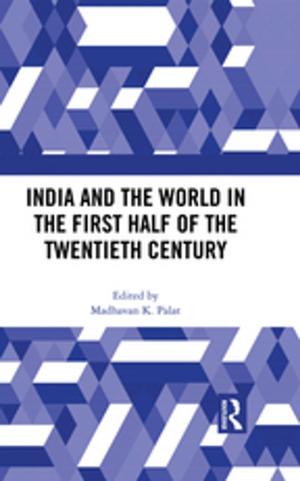Hunger: Theory, Perspectives and Reality
Assessment Through Participatory Methods
Nonfiction, Social & Cultural Studies, Social Science, Statistics| Author: | Amitava Mukherjee | ISBN: | 9781351156189 |
| Publisher: | Taylor and Francis | Publication: | November 30, 2017 |
| Imprint: | Routledge | Language: | English |
| Author: | Amitava Mukherjee |
| ISBN: | 9781351156189 |
| Publisher: | Taylor and Francis |
| Publication: | November 30, 2017 |
| Imprint: | Routledge |
| Language: | English |
Hunger is an issue which has been subject to much rigorous intellectual examination by economists, philosophers, sociologists, NGOs and governments. This volume provides a critical overview of current academic and political perspectives and then compares these views from thenon-hungry people with those of thehungry particularly from a broad range of poor communities in India. Their views are gathered using participatory rural appraisal techniques and the scale of the material presented is unprecedented. Not surprisingly, the comparisons show that the perceptions of the hungry are fundamentally different from those of the non-hungry. It makes compelling suggestions about how best policy makers can attempt to eliminate hunger based on what the hungry themselves suggest. The book also draws attention to the critical role of Common Property Resources and women in the fight against under-nutrition, which have so far been largely ignored.
Hunger is an issue which has been subject to much rigorous intellectual examination by economists, philosophers, sociologists, NGOs and governments. This volume provides a critical overview of current academic and political perspectives and then compares these views from thenon-hungry people with those of thehungry particularly from a broad range of poor communities in India. Their views are gathered using participatory rural appraisal techniques and the scale of the material presented is unprecedented. Not surprisingly, the comparisons show that the perceptions of the hungry are fundamentally different from those of the non-hungry. It makes compelling suggestions about how best policy makers can attempt to eliminate hunger based on what the hungry themselves suggest. The book also draws attention to the critical role of Common Property Resources and women in the fight against under-nutrition, which have so far been largely ignored.















